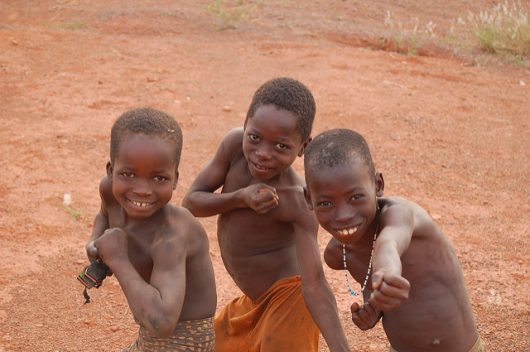10 Facts About Hunger in Benin

Benin is a French-speaking nation in Western Africa that formed in 1960. The country has one of the most stable democracies in the entire continent of Africa. However, it is also one of the poorest and most severely undernourished nations both in Africa and in the world. To better understand the nation and how hunger impacts it, here are 10 facts about hunger in Benin.
10 Facts About Hunger in Benin
- In Benin, 11 percent of citizens do not have reliable access to nutritious food, while 34 percent have limited or poor food consumption.
- Out of the children in Benin aged six months to 59 months, 32 percent suffer from chronic malnutrition. Consequently, UNICEF states that “Undernutrition puts children at greater risk of dying from common infections, increases the frequency and severity of such infections and contributes to delayed recovery.” It can also lead to stunted growth and reduced performance in school.
- Benin ranks 21st out of 45 nations on the Hunger and Nutrition Commitment Index. This is an index that measures developing countries with alarming undernutrition rates on their commitment to addressing hunger through policy, spending and law.
- Nearly 10 million people in Benin survive on subsistence farming and are dependent on a stable climate to sustain their crops.
- The NGO Hunger Free World has begun leadership training called YEH in Benin. Thus, Benin citizens can learn about the importance of agriculture and how to engage with their communities.
- In 2011, Benin joined the Scaling Up Nutrition Movement. This is a movement designed to engage countries in the process of eradicating malnutrition and track their progress. Since then, substantial gains have been made towards reducing hunger in Benin. As of the end of 2016, Benin was halfway to meeting all of the SUN’s strategic goals.
- Benin’s former President, Thomas Boni Yayi, implemented The Strategic Plan for Food and Nutrition Development (PSDAN). The document aims to “[make] Benin a country where every individual has a satisfactory nutritional status.”
- Benin is part of the McGovern-Dole Food for Education Program. This program works to both reduce hunger and improve education by providing meals in Benin schools.
- In order to improve the agricultural outlook of Benin’s citizens and reduce the overall hunger in Benin, the Food and Agriculture Organization of the United Nations developed an Integrated Production and Pest Management Programme (IPPM Program). The IPPM is therefore working on “developing local farming capacity, improving food security and livelihoods and raising awareness.”
- The World Health Organization created an interactive tool to help visualize the strides Benin must take to continue improving nutrition.
The problems of malnutrition and hunger in Benin affect millions of its citizens every day. However, Benin is proving to be a resilient nation, as the country’s policymakers are committed to progress. They are also willing to work with international allies to step into a world of better nutrition for all.
– Adesuwa Agbonile
Photo: Flickr
